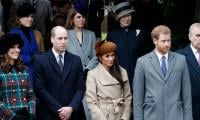ISLAMABAD: As the much-touted forensic report about sugar and flour scam is due on April 25, another shocking disclosure regarding sugar export appeared on the scene that 68.7 per cent of the total exported sugar to Afghanistan was interestingly sent without opening the letter of credit (LC) that posed serious doubt on the transactions that the said quantity of sugar might not have been exported at all, while the sugar barons had managed to pocket the subsidy in the name of exports.
However, the forensic report will exactly identify that how much sugar was exported to Afghanistan and those who had exported sugar without opening the letter of credit, in the case the sugar was not exported but they had made money illegally by getting export subsidy. More importantly, there was a possible threat of price hike up to Rs110 per kg during the upcoming month of Ramazan from the sugar mafia. This was revealed by the Special Assistant to Prime Minister on Accountability Shahzad Akbar in a cabinet meeting chaired by the prime minister on April 7, 2020.
According to the minutes of the meeting available with The News, Shahzad Akbar informed the cabinet that out of the total exported sugar, 68.7 per cent was reportedly exported to Afghanistan and the rest to other destinations. Akbar further explained that the export to Afghanistan was somewhat complex as no letter of credit was opened unlike other countries, and the forensic report reconciling the data of State Bank of Pakistan and FBR juxtaposed to the sugar quantity released for the purpose of exports by the sugar mills, and it could only reveal the exact situation.
The Special Assistant to the PM on Accountability also brought to notice of the cabinet that the sugar mafia had been posing continuous threats of price hike up to Rs110 per kg during the upcoming month of Ramazan. The cabinet took a serious note of the intimidating tactics and showed its resolve to take strict action against those found involved in any manipulation of sugar price.
While apprising on the chronology of events, Shahzad Akbar pointed out that the inquiry was ordered in January 2020 and finally on April 3, the prime minister considered and directed to make the inquiry report public and on April 04, the report was made public. He admitted that as per the minutes, a few prominent media anchors were given advance copies of the reports which were in line with international practice.
Explaining the subsidies given to the sugar industry on export, Special Assistant to the PM on Accountability informed that the previous government had given a subsidy of Rs20 billion in four years and during the tenure of the present government, no subsidy was given by the federal government but the Punjab government had allocated Rs3 billion subsidy amount out of which Rs2.4 billion had already been utilised. He further said in 2017, the PML-N government announced a subsidy of Rs20 billion at the rate of Rs20 per kg and Rs14.7 billion were drawn in which the federal government gave subsidy at the rate of Rs10.70 per kg as initially contemplated. No such subsidy was given by the federal government.
Akbar also informed that the sugar advisory board in its meeting held on September 11, 2019, recommended the export of one million tons of sugar as at that time, an estimated 2 million tons of excess sugar was available in the country. The ECC approved the recommendations, without allowing any subsidy, so the mills could be facilitated in clearing the old stocks and the new crushing season of sugarcane should not have been disrupted. The permission to export was also conditional as it was decided that in case of any price increase, the sugar advisory board would come back with the proposal to ban the sugar export. The cabinet had ratified the decision of the ECC primarily in consideration of consequences for the poor farmers.
It was further explained that the decisions of making sugar export of one million tons and without giving subsidy by the federal government, were taken through institutional due diligence and recommendations by the sugar advisory board and collectively approved by the ECC to be finally endorsed by the cabinet. Later on, the provinces had decided to give subsidies at their respective levels because there was a spectre of sugarcane farmers to embark on strike. It was also mentioned that further institutional arrangement was made to supervise the ongoing local supply and process of sugar during the period of export of sugar.
It was added that the inter-ministerial committee regularly met to do the job and the price hike of sugar was due to increase according to the rate of sugarcane as well as due to rise in sales tax by the government. According to Akbar, the sugar advisory board had recommended the permission to allow export of one million tons of sugar in the wake of US $1 billion package agreed with Chinese government under which it was envisaged that China would import rice, cotton yarn and sugar from Pakistan duty free.
Final report with recommendations will be sent to Governing Council for decision, which will be held in Mexico
Shah’s arrival at ICC office is most likely to be significant for a final decision on hosting of prestigious...
Highlight of celebrations was dancing fountains show which was organised on Sunday
Mazhar Iqbal transferred from Commissioner, Regional Tax Office, Rawalpindi
Tarique Rahman, son Khaleda Zia was convicted in absentia for attack on political rally called by Hasina
Letter asks to consider revised list and take further action







